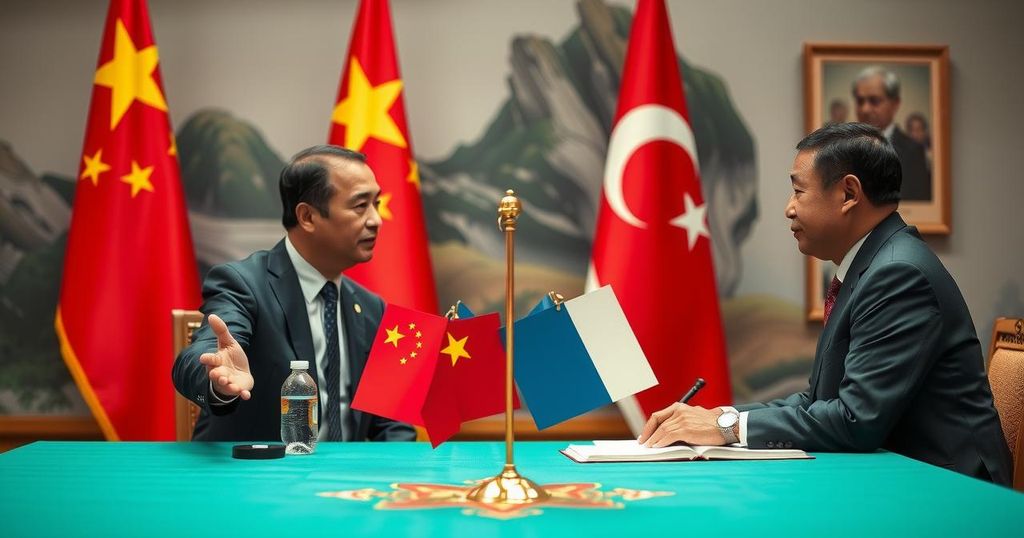China Reaffirms Support for Somalia Amid U.S. Push for Somaliland Recognition

China’s envoy, Xue Bing, visited Somalia to reaffirm support amid U.S. recognition efforts for Somaliland. The visit coincided with Somaliland’s presidential inauguration and reflects China’s opposition to Taiwan’s engagement with the region. The scenario exemplifies the competing interests of China and the U.S. in the Horn of Africa, particularly in Somali governance and territorial disputes.
In a significant move regarding the geopolitical landscape of the Horn of Africa, China’s special envoy for the region, Xue Bing, recently visited Somalia to express Beijing’s unwavering support for the Somali government amid increasing calls from the United States for the recognition of Somaliland. This visit underscores China’s commitment to Somalia’s sovereignty and territorial integrity, especially against the backdrop of the December inauguration of new Somaliland President Abdirahman Mohamed Abdullahi.
During his visit to Mogadishu, Xue Bing conveyed a strong message to Somali President Hassan Sheikh Mohamud, stating that China stands by Somalia in safeguarding its national interests. Somaliland, which declared independence in 1991, remains unrecognized internationally, with Somali authorities asserting that it is part of their territory. The recent inauguration of President Irro coincided with the attendance of officials from Taiwan, provoking a diplomatic protest from China.
The presence of Taiwan’s deputy foreign minister at the inauguration has further complicated the regional dynamics, prompting Beijing to express its disapproval of any formal relationships between Somaliland and Taiwan. China views Taiwan as an integral part of its territory and vehemently opposes recognition of its autonomy, a position that aligns with broader international perspectives on the issue. In parallel, the United States has displayed support for Somaliland’s political developments, with its ambassador to Somalia commending the region’s commitment to democratic processes.
This situation highlights the competing influences of China and the United States in East Africa, as both powers seek to expand their geopolitical footholds while managing sensitive issues related to regional governance and recognition.
Overall, the dynamics in Somalia and Somaliland are indicative of larger global trends where nations find themselves navigating complex political landscapes influenced by foreign powers with vested interests in the region.
The evolving scenario would benefit from continued international dialogue, emphasizing the importance of regional stability and integrity as navigating these waters proves critical for all parties involved.
Somaliland, a self-declared independent region of Somalia, has remained unrecognized by any nation since its declaration of independence in 1991. Despite this lack of formal recognition, Somaliland operates with a considerable degree of autonomy and has held democratic elections, establishing a semblance of stability that is often celebrated in international circles. China’s relationship with Somalia is primarily characterized by economic and infrastructural partnerships, while the U.S. has recently shown increasing interest in Somaliland as a potential independent entity, thereby stirring diplomatic tensions in the region. The role of Taiwan adds another layer of complexity, given its contentious status and aspiration for global recognition, which China fiercely opposes.
China’s recent diplomatic engagement with Somalia amid U.S. support for Somaliland signals a pivotal moment in the geopolitical arena of the Horn of Africa. With both nations vying for influence, the commitment from China to uphold Somalia’s sovereignty reflects its broader strategic goals in the region. Meanwhile, U.S. backing of Somaliland underscores a significant shift in its foreign policy interests. The interplay of these geopolitical dynamics necessitates careful navigation to maintain stability and promote cooperation among all stakeholders involved.
Original Source: www.scmp.com






